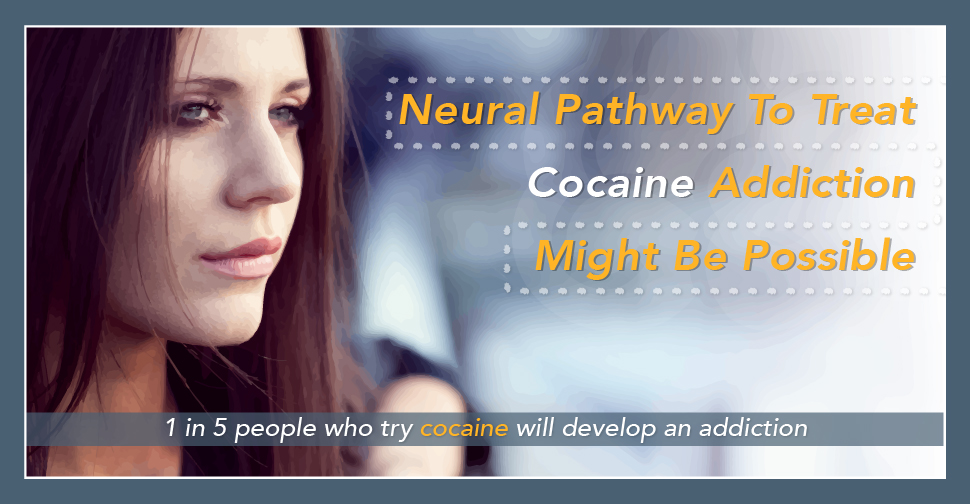Pharmaceuticals Could Help Cocaine Addiction
Using other types of drugs to treat drug addiction such as cocaine is not a new concept but it may be debatable. Repeated cocaine use and addiction to cocaine increases the brain’s amount of dopamine (the pleasure centers of the brain). Every time a person uses cocaine, they are essentially changing the chemistry of their brain. Those who have fewer dopamine receptors in their brain are more likely to develop an addiction because they are seeking out cocaine, which is a dopamine-increasing drug.
Scientists have recently found a neural pathway that was undiscovered until now. Using pharmaceuticals may be the next best way to help those recovering from a drug addiction. The neural pathway is thought to maintain a person’s likelihood to relapse. Relapse is central to a cocaine user’s problems because of cocaine’s changes to the brain, making the habit so hard to shake.
In a recent study using lab mice, scientists were able to increase or decrease the animals’ relapse by controlling their Activin receptors. Activin receptors are closely linked to pleasure and reward in the brain. Cocaine changes the brain’s connection to neurons because it changes the shape of cells. Scientists don’t yet fully comprehend why Activin receptors link up with cocaine usage, but they think that the receptors control certain genes which stop cocaine from changing neural pathways. The goal of using pharmaceuticals with neural pathways is to prevent relapse from happening.
What Else Can Mice Reveal?
Scientists say that 1 in 5 people who try cocaine will develop an addiction. Some people, however, do not develop an addiction and scientists are trying to figure out what makes their brains different from those who do develop an addiction. In the study with mice, scientists allowed the animals to poke their noses through an enclosure that contained cocaine. Some of the mice obsessively poked their noses through, seeking more cocaine, while other mice only poked their noses through a few times and couldn’t care less. Scientists discovered that the mice that were not addicted to cocaine showed a strong resilient factor. The resilient mice had stronger inhibitory circuits which gave them better control over how often they visited the drugs.
Why Neurons And Addiction Go Hand-In-Hand
It used to be common knowledge to think that our neural pathways were well-established and rather rigid when we reached adulthood. Recent research however, shows that our brains are much more intricate and adaptive than that. The brain is constantly making new neurons and pathways throughout our lives. For example, if someone is in a tragic car accident and suffers from brain damage, neurons rebuild new pathways around the damaged area. This is called neuronal plasticity. And it happens more often than you’d think.
How We Can Think About Neuroplasticity And How It Changes Us
Imagine you are driving to your favorite restaurant, which you have visited many times. Your brain is wired and recognizes if you have used the same roads over and over again to reach your final destination. Now imagine the next time you drive to your favorite restaurant, a new construction sign is posted and the road is closed for 3 months. You must take a detour that you’ve never used before to get to your favorite place. After driving the detour (maybe several times if you keep visiting the restaurant), your brain learns to adjust and adapt to this new route.
This detour method and adaptation is exactly the same way our brains operate when it comes to cocaine or drug addiction. When a person retrains their brain to associate cocaine with stress-relief or even pleasure, the brain gets rewired to think that this is the new and correct path to take. It’s a good feeling that is hard to break and your brain just wants to keep repeating that feeling over and over again. You have, in effect, changed your neuron pathway the same way you would if you had to learn how to drive a new detour. This is why looking into neuron pathways is so important if we want to understand addictions. Luckily, just as the brain rewired itself for cocaine addiction, the brain can rewire itself after an addiction. Though it is very difficult to do, it can be done. And that is why pharmaceutical use to stop cocaine addiction relapse may help.
Hope For The Future
While scientists are still trying to figure out exactly how neurons and Activin receptors are linked to addictions such as cocaine, perhaps pharmaceuticals that prevent a relapse from happening is the next best thing.
 If you’d like to know more about how neural pathways can help cocaine addiction, please contact us at DrugRehab.org. We are here to give you the best information for getting into treatment for addiction and making moves toward a new and drug-free future.
If you’d like to know more about how neural pathways can help cocaine addiction, please contact us at DrugRehab.org. We are here to give you the best information for getting into treatment for addiction and making moves toward a new and drug-free future.

